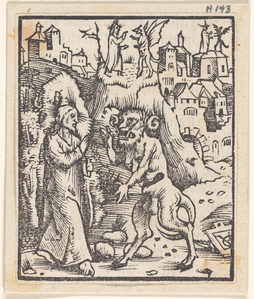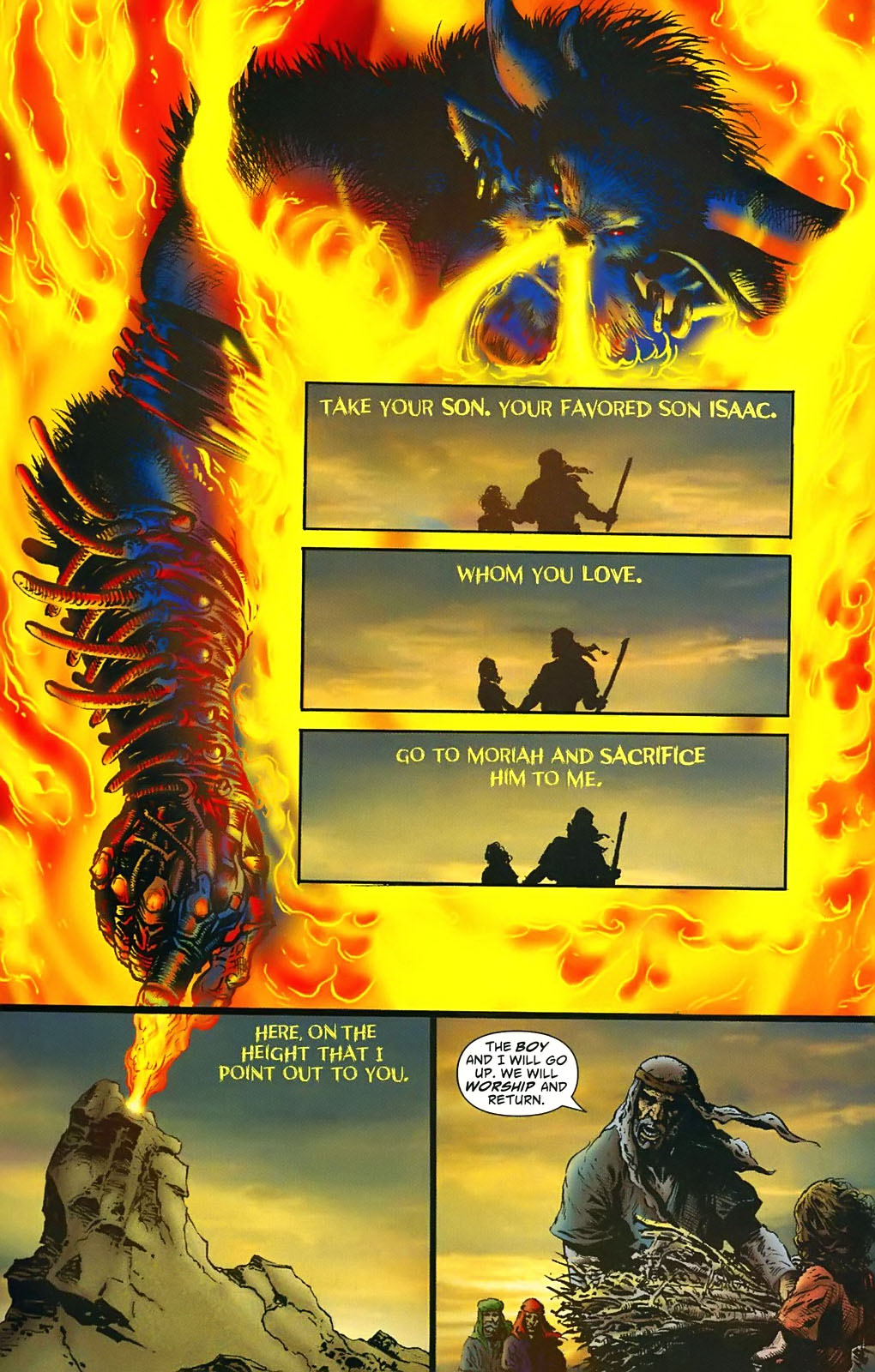Scapegoats, Royalty, and a Summary of the Series So Far
We apparently need a scapegoat on whom to blame 'the bad stuff', whether or not there is one single entity at fault for what ails us. Does the devil have goat's feet by coincidence?

Yes, it's been ages since I posted. I have not been idle though, not that I have anything against idleness in general. I am working on a project which relates to all this esoteric stuff and which hopefully is a cat which can be let out of the bag soon. Cats like boxes (apart from Shrödinger's), but are not so keen on bags, I've noticed.
This post contains a summary of the past posts in the series anyway, so it will remind you of where we've rambled so far across this strange and occult territory.
The Princess of Wales and Dodi Fayed have been killed in a car crash in Paris. The accident happened as their car was being chased by photographers in a road tunnel near the Eiffel Tower. The Princess died in hospital a few hours later.
This was the BBC, about 8am on Sunday morning, August 31st 1997.
I was just getting home from a party. There had been dancing, possibly substances consumed, I can't remember now. I remember feeling happy, and not too tired, despite the lack of sleep and the fact I'd ridden home on my bike from the other side of the city. I rolled into the flat I shared in Brighton, deposited myself on the sofa with a cup of tea, and turned on our ancient television, sound down low so as not to wake my flatmate.
When I heard the news I couldn't believe it. It was as if I had never left the party and was dreaming everything. In a moment I would come to and find myself crashed out on an old mattress in the chillout zone. But no, this reality stubbornly insisted on being. This had happened and Diana was dead.
I had never been interested in the royal family. I went to a cricket match on the day of Charles and Diana's wedding, specifically to avoid it, even though I was only ten years old. My grandfather took me, then left me there and went back to watch the wedding. This was fine back then, my parents knew this was the plan and were okay with it.
To me, the whole 'royal' thing was a soap opera. I considered myself above it, even at the age of ten. I still felt the same seventeen years later, sitting there on our old but comfortable sofa. But of course it shocked me. We expect reality to have a narrative arc like a story, and sometimes it obliges. When something happens like this we feel as if the rug has been pulled out from under us. It just makes no sense. In one way this was indeed a senseless end to the whole 'Diana, Princess' narrative, but now from the perspective of twenty-five years later, I can see that it does indeed have a kind of archetypal resonance.
Diana had been unconsciously cast in the role of scapegoat. In order to explain this, I will back up a bit and collect some threads from the rest of this series.
Is Utopia just a dangerous mirage? We shoot off towards it, and very often end up creating yet another version of 'hell on Earth'. Marx had a superb analysis of capitalism; I am sure his intentions were pure. Yet the solutions he proposed to reversing its inequities opened the door for monsters like Stalin and his gulags and forced labour camps.
The question we seek an answer to is: why do we keep producing unwanted outcomes? Are our failures due to some flaw in 'human nature', or is there an Adversary out there somewhere, influencing events towards their own malevolent ends? Who or what is to blame?
Does humanity as a collective want climate catastrophe, nuclear proliferation, war, poverty, hunger, and all the other ongoing disasters we seem unable to do anything about? Surely not; yes, it's true that some people undoubtedly derive short-term benefit from all of these, yet it must be obvious that the end result of these crises, when stacked on top of each other, is self-termination.
Maybe we are unwitting puppets of a Universal Bad Guy, an Ultimate Bond Villain, a repository for all the things the 'Good God' cannot possibly be responsible for?
Or it is the Illuminati, a cabal of evil men whose machinations control major world events for their own benefit. To my mind, this is not impossible, merely very unlikely indeed. There are simpler explanations, and surely not every evildoer wants the same outcome? For example, lockdowns and vaccine mandates may benefit Big Pharma, but they do not necessarily mean business for Wall Street as a whole.
We apparently need a scapegoat on whom to blame 'the bad stuff', whether or not there is one single entity at fault. Does the devil have goat's feet by coincidence?

The etymology of 'scapegoat' might help us understand. In the Bible, a 'scapegoat' was one of a pair of goats, the first of which was sacrificed to Yahweh, and the second was sent away into the wilderness, taking with it all the sins of the community, which had been passed on to it via a ritual of confession. This second goat is the 'scapegoat'.
The ancient Greeks also practised this ceremony. Mythologically, the sacrifice should rightfully have been of a king or other person of high standing in society, yet as kings and queens were understandably reluctant to be sacrificed, and it was tricky to persuade them to take one for the team, a slave or poor person was usually chosen. To correct the imbalance, the one selected as scapegoat was often given a banquet and fancy clothes to wear just before meeting their sacrificial end.
As the French philosopher of social science René Girard posited, this process is still at work in our modern societies. His theory of mimetic rivalry explains how human development happens via the process of desiring something possessed by another. This sets in motion a rivalrous dynamic which often escalates to the point where the conflict can only be defused by making a sacrifice; this is the scapegoating mechanism. The person thus chosen, having made the ultimate sacrifice for the wellbeing of the community, is now considered a deity.
The drama around the death in 1997 of Diana, Princess of Wales, is an example of this mechanism. The British people feel a great deal of resentment towards royalty, resulting, in my opinion, from the inherent inequality implied in the existence of such a thing as a Royal Family. The bargain they are expected to make in return for their privilege is to carry out their official functions with decorum and, unless called upon, to remain in the background. While this side of the bargain is being fulfilled, the resentment generally exists as an unacknowledged undercurrent.
It became more pronounced, however, when Diana became estranged from her husband Charles, the Prince of Wales, and started to date other men, particularly the (Muslim) son of a billionaire, Dodi Fayed. She was demonised and hounded by the British tabloid newspapers to the point that she ended up in a fatal car crash while attempting to escape their attentions.

Diana's desire to ignore the constraints applied to the Royal Family as a whole awakened the demon of mimetic rivalry. A sacrifice was needed, and was carried out. Afterwards peace was restored, the media did a complete volte-face, she was suddenly pronounced 'England's Queen of Hearts', and effectively deified.
The whole sacrificial process in this case was of course carried out unconsciously. To have followed this dynamic consciously would have appeared barbaric and shameful to modern sensibilities, yet I believe that if we do not consciously acknowledge and engage psychic realities, for example in rituals or in art, they are repressed and then appear as events such as these, often in more violent form.
As an example of a potentially more healthy attitude, the causes of undesired outcomes can be consciously represented as Moloch or as Ahriman and Lucifer, for instance. This act of naming allows us to think of complex processes as single entities. We should hold these concepts lightly though; coming to believe they are literally real can drag us back down into the scapegoating dynamic.
In fundamentalist Christianity people are accused of being possessed by the devil and exiled from their communities. If we were to start thinking of Steiner's prophesied 'incarnation of Ahriman' as a single person, we might go looking for him or her and unwittingly produce a scapegoat.
Story So Far
To summarise the series so far, it's been my intention to highlight some of the most vital representations of dark forces being used as symbols for unwanted outcomes and their causes. First consciously, as the modern usage of Moloch to represent coordination failures, multi-polar traps, and races to the bottom.
In this usage the figure of the ancient Ammonite god mentioned in the Bible is employed entirely metaphorically, leaving to one side the question of whether he is 'real' or has agency in any sense we would ordinarily recognise.
Secondly we looked at Rudolf Steiner's idea of Ahriman. It appears to me that for Steiner, Ahriman functions both as metaphor (in this case for a certain type of Earth-bound drive towards mechanisation, contrasted with the upward-facing creativity and ego inflation of Lucifer), and also as an entity which could be described as 'independently existing'. This existence may take form outside what we understand as physical reality, yet contains the possibility of agency and the ability to affect our lives as human beings on this planet.
Thirdly, we considered the Solid State Intelligence, written about by John C. Lilly. The SSI is considered by Lilly to be a Frankensteinian intelligence external to, and autonomous from, humanity, yet inadvertently birthed by it.
Despite many similarities with, for example, Ahriman, in his mind there is no metaphorical dimension to the entity and it is 'real' in the sense that it has its own will; a will whose fulfilment he warns may very well result in the end of humanity itself. He felt strongly enough about this to make a fruitless attempt to telephone the White House in order to warn the President about it.
These characterisations of dark forces can all be considered as archetypes. In his book 2012 The Return of Quetzalcoatl, Daniel Pinchbeck quotes Jung's follower Edward Edinger's definition of 'archetype' as:
“a primordial psychic pattern of the collective unconscious that is at the same time a dynamic agency with intentionality.” The archetypes hover outside or offstage our human drama, awaiting their moment to “constellate” in the individual and collective psyche, catalyzing processes of transformation with far-reaching consequences.
This might seem a somewhat heady and ethereal notion, (as I am aware that quite a lot of this might appear to be), however it is brilliantly brought to life in Douglas Rushkoff's excellent graphic novel Testament, where he shows the gods (and indeed the Judeo-Christian God Himself) as archetypes outside the panels of the story, yet able to interact with its characters at certain key moments for their own ends. This panel shows Moloch as a wrathful aspect of Yahweh ordering Abraham to sacrifice his son:

Egregores
So now we are getting to the meat of the matter, and what these entities may have in common: the interplay between archetypes and consensus reality and how archetypes function in our day-to-day lives. To do this we will introduce a word not from Jungian or depth psychology (such is 'archetype'), but one from the Western occult or esoteric tradition: egregore.
Next time we will probably dive into what an egregore is, or might be.



